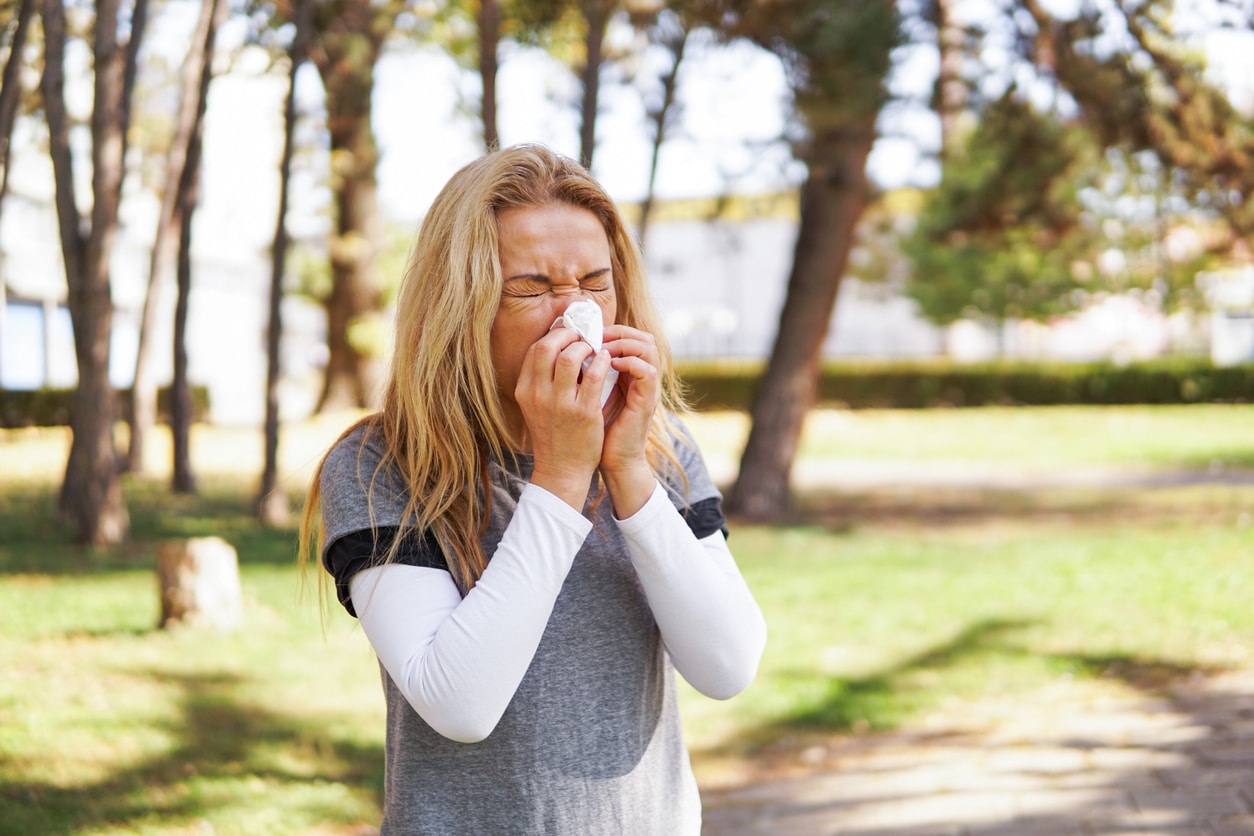Spring and summer bring warm weather, pool parties and fun days at Laurel Park, but they can also bring tree pollen. If you have an allergy to tree pollen, you may start experiencing symptoms including but not limited to:
- Runny or stuffy nose
- Sneezing
- Red, swollen or watery eyes
- Itchy nose or eyes
Because tree pollen can float through the air for miles, it can be hard to avoid in the spring. Let’s look at a couple of ways you can manage tree pollen allergy symptoms during the spring and summer months.
Managing Allergy Symptoms

Approximately 40% of allergic individuals have an allergy to pollen. Knowing how to manage the symptoms of allergies can be a great way to enjoy summer, even with pollen in the air. Some remedies may include:
- Nasal sprays
- Eye drops
- Decongestants
- Antihistamines
These remedies can be effective at managing your allergy symptoms. If allergies are prolonged or severe, your ENT specialist may recommend immunotherapy. This practice reduces your sensitivity to an allergen by exposing you to gradually increasing amounts of it through shots or drops.
Managing Exposure To Tree Pollen
While tree pollen cannot be entirely avoided in the spring and summer months, it can be managed to a degree. Some steps you can take to reduce contact include:
- Keeping an eye on the pollen count. Swap out days in the park for indoor activities when the pollen count is high.
- Closing the windows. Closing the windows in your home and relying on AC can help keep your home a safer, pollen-free zone.
- Changing and washing clothes. If you’ve been walking around in a high-pollen zone such as the park, change and wash your clothes when you return home to prevent bringing unnecessary pollen inside. If your allergies are severe, showering after a day in Forest Park to rinse off pollen is advised.
While you may not be able to avoid tree pollen altogether, following these simple steps can help you manage your exposure and symptoms for a more fun, allergy-free summer.
Contact Midwest ENT Centre today if you’re experiencing allergy symptoms and would like to discuss them with an ENT specialist.
[related-posts]